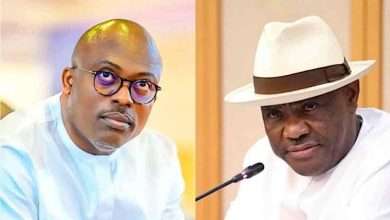
The Health of Mother Earth Foundation (HOMEF) has condemned the proposed plans to alow ‘Non Hazardous’ wastes from the European Union (EU) countries, describing the idea as ill-conceived.
The European Commission recently confirmed that Nigeria and 23 others became the countries that met the Feb 21 deadline for inclusion in non-hazardous waste imports.
HOMEF in a statement signed by Miss Kome Odhomor, Media/Communication Lead said it is shocking and painful attempt to import “non-hazardous” waste from the EU into the the country at a time of widespread ecological challenges.
HOMEF noted that even wastes certified as
non-hazardous are often hazardous, containing traces of heavy metals and other dangerous elements.
“We denounce the ploy, under any guise, to import any form of waste to Nigeria.
“It is clear that rich countries commodify waste and make it appeal to the appetites of poorer countries that are seeking foreign exchange by all means.
“Thus, the EU could report that €18.5 billion worth of EU waste was exported in 2023. What the impacts of those wastes have been and will continue to be in the countries where they were exported is a question that the trade merchants will never answer.
“The EU seem to align with the assertion of Lawrence Summers, World Bank Chief Economist in 1991, who wrote that Africa is hugely under polluted and that it makes economic sense to dump wastes here.
HOMEF recalled that Summers in his memo, he said, “Just between you and me, shouldn’t the World Bank encourage more migration of the dirty industries to the Least Developed Countries ?
“A given amount of health-impairing pollution should be done in the country with the lowest cost and the country with the lowest wages.
“I think the economic logic behind dumping a load of toxic waste in the lowest wage country is impeccable, and we should face up to that,”
HOMEF regretted that in a world that is in the grip of extreme geopolitical distortions, the shameful truth is that the high consumption nations are happy to offload their wastes on zones regarded as suitable for nothing except to be sacrificed as refuse dumps.
HOMEF recalled the willful dumping of toxic waste in Koko, Delta
State, Nigeria, in 1988, labelled “non-hazardous” and branded as “fertilisers”.
According to the group, while the labelling was to portray no harm, the actual content was indeed harmful, with significant impacts and contamination on air, water and land.
“We also remember the Trafigura case of waste dumping in Côte d’Ivoire after several unsuccessful efforts to dump wastes in several other countries for an induced fee of about $17,000 with the help of local collaborators in the name of waste management companies.
“The hazardous nature of the wastes was concealed and became known only after other countries refused.
“We see the “Request for Inclusion in the list of countries to which the export from the European Union of Non-Hazardous Wastes and Mixtures of Non-Hazardous Wastes Destined for Recovery is Authorised” as a ploy to woo countries like Nigeria into obnoxious systemic legal waste colonialism,” HOMEF stated..
The ecological think to regretted that Nigeria and other African countries have become dumpsites for thousands of obsolete and unusable computers and other e-waste.
HOMEF noted that major sources of these e-wastes include China, the United States, Spain, the United Kingdom, the UAE, and Morocco.
It noted Nigeria is already plagued with environmental pollution arising from oil and gas exploitation, pollution arising from the exploitation of solid minerals, plastic pollution, and genetic pollution in foods.
The statement quoted Dr Nnimmo Bassey, HOMEF’s Executive Director as saying: “For a country already almost overwhelmed by these issues, seeking approval to import waste of any kind is not only ill-advised but also ecocidal and dangerous.
“This move exposes the government’s willingness to discount the wellbeing of citizens for a mess of porridge.
“It is inconceivable that a nation with life expectancy of about 56 years and a broken healthcare delivery system would succumb to the level of begging to import someone else’s waste, when we can hardly handle our domestic wastes,” he lamented.
“HOMEF, as well as other well-meaning Nigerians, rejects the Nigerian government’s plot to allow other countries and regions to use Nigeria or any other African nation as dumpsites for waste products from their conspicuous consumption,”




